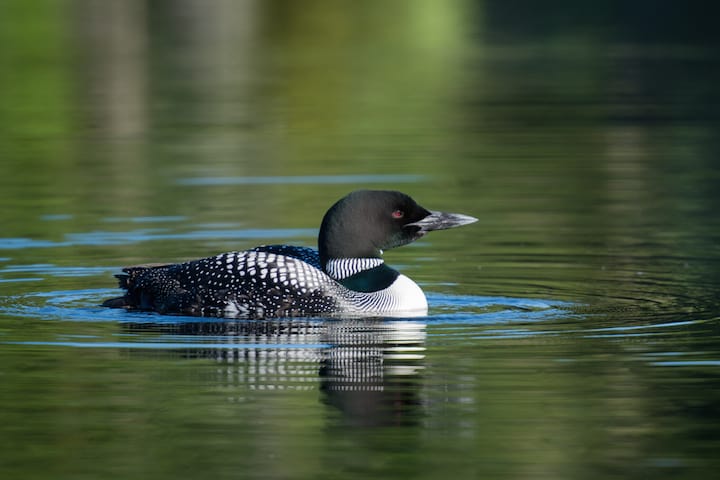
MONTPELIER, Vt. – Vermont’s loons are thriving with a record 109 nesting pairs recorded in 2021, the highest since loon monitoring began in 1978, according to the Vermont Fish & Wildlife Department and Vermont Center for Ecostudies.
“Across Vermont, 77 loon nests produced 125 chicks this year, and 84 of those chicks survived through August,” said VCE wildlife biologist Eric Hanson.
VCE leads the Vermont Loon Conservation Project in partnership with the Vermont Fish & Wildlife Department.
“We are very grateful to Eric Hanson and the many volunteers who help monitor Vermont’s nesting loons,” said Fish & Wildlife’s bird biologist Doug Morin. “The loon has been the flagship species of our nongame work ever since the nongame tax checkoff and conservation license plate programs have been helping to fund these efforts.”
“Vermont’s loon project is a tremendous success story,” added Morin. “It’s hard to believe that in 1983 there were only seven nesting pairs.”
Loons were removed from Vermont’s endangered species list in 2005 following decades of recovery efforts. One of the main threats still facing loons as they continue to recover is human disturbance during the breeding season.
“Many areas where loons are nesting on Vermont’s lakes are surrounded by signs reminding people to give loons the space they need, but not all nesting areas are marked,” said Morin. “We ask people to enjoy loons from a distance, whether they are in a motorboat, a canoe, or a kayak.”
Morin also reminds people to avoid lead fishing tackle. Loons sometimes swallow stray fishing tackle and suffer the effects of lead poisoning. Lead sinkers weighing one-half ounce or less are prohibited for fishing in Vermont. And, he recommends that anglers be careful to not attract loons to their bait and lures, and especially don’t leave any fishing line behind as fishing tackle does kill loons.